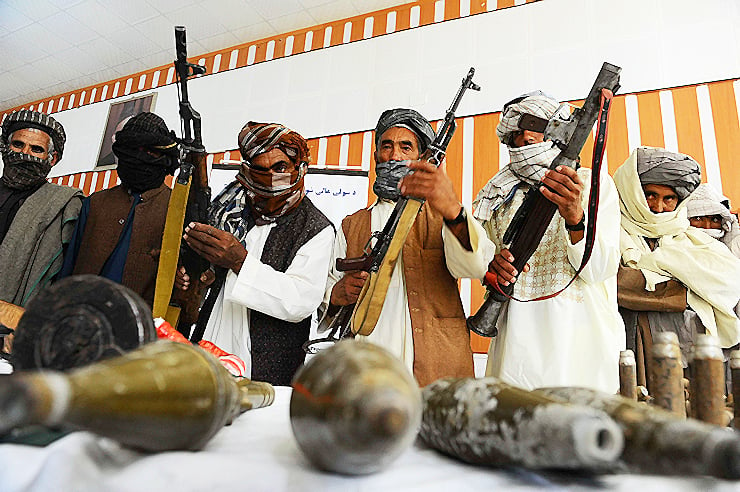
Peace talks between the Afghan government and the Taliban in the capital of the Gulf State of Qatar, Doha, were announced in June only to be cancelled in a row over the Taliban displaying their banner and flag, a reminder of their repressive rule over Afghanistan from 1996 to 2001.
The Doha office was closed within 24 hours of its opening.
Many supporters of the peace process say Taliban involvement is essential to ensure security at next year's presidential election and stability following the departure of most foreign troops from the country next year.
"The problem is the Taliban raised their flag and banner at the Doha office and they would be embarrassed now to hold talks without them," said Habibullah Fouzi, a senior member of the High Peace Council, the body created by Afghan President Hamid Karzai in 2010 to pursue peace with the Taliban.
A one-time Taliban diplomat who is now trying to convince his old comrades to lay down their arms, Fouzi said he was pessimistic about the Doha office re-opening.
"For us what is most important thing is to begin the talks with them in a second location, either Turkey or Saudi."
Afghan negotiators hope to secure a peace deal with the Taliban ahead of next year's presidential election, due to take place on April 5.
"What is important is for talks to begin, so as to know whether they (Taliban) want to be part of the political process," Fouzi said.
If the Taliban refuse to participate, they could play a powerful spoiling role by attacking election facilities and officials and intimidating Afghans into not voting.
Pakistan is also considered crucial to peace talks with the Taliban as it is widely believed Taliban sanctuaries straddle the mountainous border between the South Asian neighbours.
1734776708-0/Untitled-(8)1734776708-0-405x300.webp)
1734773637-0/Untitled-(7)1734773637-0-165x106.webp)
1734772637-0/Untitled-(6)1734772637-0-165x106.webp)
1734769757-0/Untitled-(4)1734769757-0-165x106.webp)
1734765764-0/Untitled-(3)1734765764-0-165x106.webp)
1734770488-0/Untitled-design-(3)1734770488-0-270x192.webp)
1734242367-0/Copy-of-Untitled-(4)1734242367-0-270x192.webp)


1700590050-0/Rahul-Gandhi-(2)1700590050-0-270x192.webp)
1732089759-0/BeFunky-collage-(75)1732089759-0-270x192.webp)




1734587529-0/Express-Tribune-(1)1734587529-0-270x192.webp)
1734606611-0/Express-Tribune-(8)1734606611-0-270x192.webp)






COMMENTS
Comments are moderated and generally will be posted if they are on-topic and not abusive.
For more information, please see our Comments FAQ